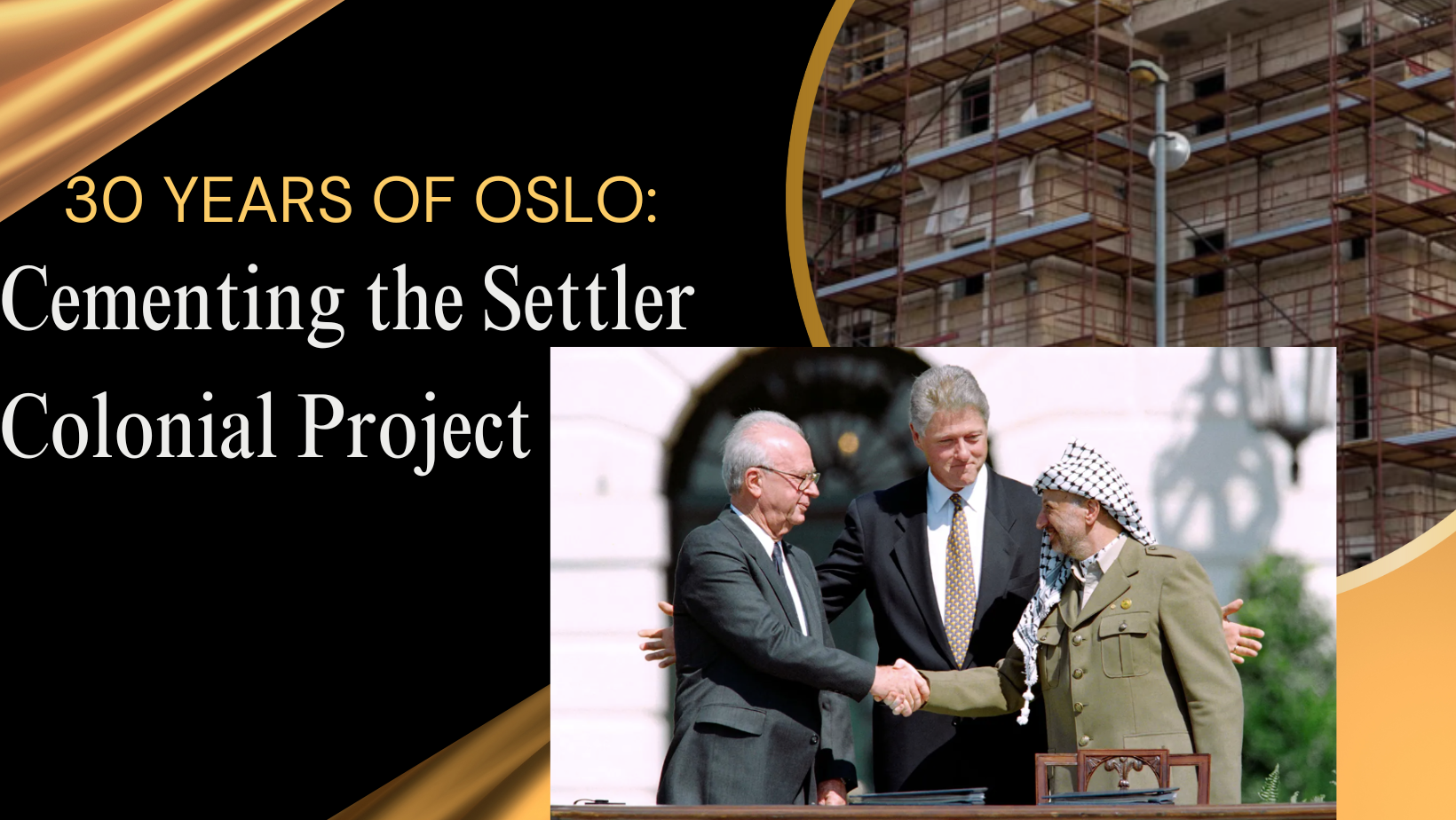The Oslo Agreement serves as a stark reminder of the pressing need to confront the core problems of occupation and colonialism for any substantial progress toward a resolution. It underscores the urgency of achieving a just and comprehensive solution to the Palestinian struggle, one that prioritizes the return of the Palestinian refugees, Palestinian self-determination, and equal rights for all.
The Oslo Agreement, signed with much international fanfare 30 years ago, was heralded as a historic step towards peace between Israelis and Palestinians. However, viewed through a critical lens, it becomes painfully clear that the agreement was designed primarily to serve Israeli political and economic interests, advance its political agenda, and further its settler colonial project rather than genuinely pursue peace and justice for both parties.
The Rationale of Exclusively Jewish Statehood and the Two-State Ethno-Nationalism:
One rarely discussed aspect of the Oslo Agreement is the implicit acceptance of the necessity of an exclusively Jewish state in Palestine. This underlying rationale raises fundamental questions about the agreement's commitment to equality and human rights. The focus on maintaining Israel as a Jewish state has been criticized as ethno-nationalism, which inherently leads to discrimination and unequal treatment of non-Jewish residents.
The Oslo Agreement, like many peace negotiations in the Israeli-Palestinian context, has been framed around achieving a two-state solution, where Israel coexists as a Jewish state alongside a Palestinian state. This approach is rooted in the idea of ethnic or national separation and prioritizes one group's interests over another.
Ignoring the Root Causes:
The Oslo Agreement failed to address the root causes of the Palestinian struggle. Issues such as land, borders, the right of return for refugees, and the political rights of all residents were often sidelined. This has led to a normalization of the occupation and a perpetuation of the underlying issues that continue to fuel the political situation.
Political and Economic Interests:
Oslo allowed Israel to maintain its occupation while outsourcing the management of certain areas to the Palestinian Authority (PA). This arrangement conveniently allowed Israel to retain control over key aspects of Palestinian life, such as security and borders, while outsourcing the financial burden of administration to international donors. The economic interests of Israel were served as the agreement perpetuated a captive Palestinian market for Israeli goods and cheap Palestinian labor.
Strategy of 'Facts on the Ground':
During the Oslo years, Israeli settlements in the West Bank continued to expand, and this deliberate expansion aimed to create 'facts on the ground.' This strategy, employed by the Zionist movement even before the Nakba and the establishment of Israel, seeks to make it increasingly difficult to establish a viable Palestinian state in the future. While representatives engaged in negotiations, Israel simultaneously implemented this successful strategy to dispossess Palestinians.
Political Exclusion:
Palestinians in '48 (inside the green line) have faced political exclusion within Israel. The Oslo Agreement, while dealing with the Palestinian Authority in the West Bank and Gaza, did not address the political rights or representation of Palestinians in Israel. They have seen their lands confiscated for state use or settlement expansion. This policy of land expropriation has been ongoing since Israel's establishment in 1948.The Oslo Agreement did not provide any mechanism to address or rectify these land issues, contributing to the isolation of this population.
In retrospect, the Oslo Agreement seems to have functioned more as a strategic move by Israel to solidify its control over the West Bank and Gaza territories, all while creating an illusion of progress toward peace. It established a two-tiered system where Israel retained power and dominance, granting Palestinians only a limited form of self-governance that ultimately served Israel's interests.
Rather than addressing the fundamental issue at the heart of the Palestinian struggle – the Israeli occupation and settler colonial regime – Oslo ended up normalizing the occupation. It entrenched mechanisms that not only facilitated and perpetuated the occupation but also deepened its roots. Instead of dismantling the structures of occupation and settler colonialism, the agreement seemed to cement them further.



